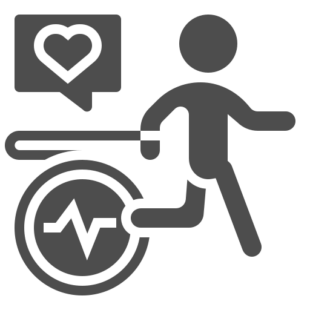
Healthcare Assistants (HCAs) play a crucial role in the UK’s health and social care system. They support patients with everyday tasks, assist clinical teams, and help maintain a calm and respectful care environment. Their work includes everything from personal hygiene and mobility support to monitoring vital signs and offering emotional reassurance. Health Care Assistants (HCAs) are often the first point of contact for patients, making their contribution essential to the overall quality of care. This blog explains what the role involves, how to get started, the skills you’ll need, and the career paths available to those who choose this rewarding profession.
What Is a Healthcare Assistant?
A Healthcare Assistant (HCA) is a frontline support role in the UK’s health and social care system, working closely with nurses, doctors, and other professionals to ensure patients receive safe, dignified, and compassionate care.
What Does a Healthcare Assistant Do?
Healthcare Assistants work under the supervision of qualified healthcare professionals, such as nurses or GPs. Their responsibilities vary depending on the setting, but they all share one goal: to support patients physically and emotionally throughout their care journey.
In Hospitals and Care Homes
Health Care Assistants (HCAs) in hospitals and residential settings typically help with:
- Washing, dressing, and personal hygiene.
- Assisting patients with meals and hydration.
- Helping people move safely, including using lifting equipment.
- Making beds and keeping patient areas tidy.
- Monitoring vital signs like temperature, pulse, respiration, and weight.
- Providing emotional reassurance and companionship.
- Supporting patients with toileting and mobility.
- Attending team meetings with nurses and other professionals.
In GP Surgeries and Health Centres
In community settings, Health Care Assistants (HCAs) may also:
- Sterilise medical equipment.
- Restock consulting rooms and prepare clinical spaces.
- Take blood samples and process lab specimens.
- Conduct basic health checks and screenings.
- Support health promotion and education campaigns.
- Advise patients on nutrition, mental wellbeing, and physical health.

Supporting the Wider Healthcare Team
Beyond direct patient care, HCAs play a vital role in communication and coordination. They often:
- Act as a link between patients, carers, and family members.
- Assist nurses and doctors with clinical tasks.
- Maintain accurate records and relay observations.
- Help create a calm, respectful, and inclusive care environment.
How to Become a Healthcare Assistant in the UK
Entry Requirements
There are no formal entry requirements to become a Healthcare Assistant, but most employers expect:
Training Routes
There are several ways to become a Health Care Assistant (HCA), depending on your background and goals:
College Courses
Studying health and social care at college can give you a strong foundation. Popular options include:
- Health and Social Care (Level 2 or 3).
- Preparing for Further Study in Health, Social Care and Social Work.
- T Level Technical Qualification in Health (Level 3) – includes work placements and practical experience
Typical entry requirements for these courses:
- 4 or 5 GCSEs at grades 9 to 4 (A* to C), including English and Maths
Apprenticeships
You can apply for a Healthcare Support Worker Level 2 Intermediate Apprenticeship, which combines paid work with training.
Entry requirements usually include:
- Some GCSEs, including English and Maths, or equivalent.
Apprenticeships are a great way to gain hands-on experience while earning a wage.
On-the-Job Training
Some people start as trainee care assistants in residential homes or care settings, then complete a qualification while working. This route is ideal if you prefer learning on the job.
Volunteering and Experience
Health Care Assistant (HCA) Training
What Skills Do You Need to Be a Healthcare Assistant?
Being a Health Care Assistant (HCA) isn’t just about clinical tasks—it’s about showing empathy, staying calm under pressure, and making patients feel safe and supported. Some essential skills will give you an advantage in securing this job. Here’s what it takes to thrive in this vital role.
Personal Characteristics
To succeed as a Health Care Assistant (HCA), you’ll need to be:
- Caring and kind.
- Cheerful and friendly.
- Hands-on and practical.
- Team-oriented.
- Respectful and sensitive.
Core Skills and Knowledge
Healthcare Assistants use a wide range of skills every day, including:
- Communication Skills.
- Organisation Skills.
- Observational Skills
- Patience And Calmness.
- Attention To Detail.
- Physical Ability.
- Customer Service Skills.
- Basic Digital Skills.
Emotional Resilience and Adaptability
You’ll also need:
- The ability to accept feedback and improve your practice.
- Confidence to work under pressure and adapt to changing situations.
- A strong sense of responsibility and ethics in everything you do.
To learn more about healthcare assistants in detail, you can explore reputable job sites that outline the exact skills and requirements. The NHS Health Careers website and the National Careers Service provide comprehensive guidance on the role, including entry requirements, duties, and career progression.
Training and Career Progression for Healthcare Assistants
Training: What You’ll Learn
As a new Health Care Assistant (HCA), your training will cover basic nursing and care skills, including:
- Personal care and hygiene.
- Infection control.
- Communication and safeguarding.
- Monitoring vital signs.
You’ll work towards the Care Certificate, a nationally recognised qualification developed by Skills for Care, Skills for Health, and Health Education England. Launched in 2015, it sets the standard for care workers across health and social care settings.

Qualifications and Apprenticeships
Many employers offer the chance to study for further qualifications while you work, including:
- NCFE CACHE Level 2 Certificate in Healthcare Support Services
- NCFE CACHE Level 3 Diploma in Healthcare Support
You can also pursue a Healthcare Support Worker Level 2 Apprenticeship, which combines practical experience with structured learning.
Career Path and Progression
Healthcare Assistant roles are a recognised stepping stone to other NHS careers. With experience and further training, you could progress to:
Senior Roles
- Senior Healthcare Assistant.
- Assistant Practitioner.
- Nursing Associate.
Degree-Level Opportunities
With the right qualifications and academic ability, you could train to become a:
- Registered Nurse
- Midwife
- Radiographer
- Dietitian
- Social Worker
- Occupational Therapist
- Podiatrist
Many universities and NHS trusts offer flexible routes for mature students and those already working in care.
Conclusion
Becoming a Healthcare Assistant is more than just starting a job—it’s joining a community of care professionals who make a real difference in people’s lives every day. With flexible training routes, accessible qualifications, and clear progression pathways, the role offers both personal fulfilment and professional growth. Whether you’re just starting out or looking to transition into healthcare, working as an HCA can be a meaningful and empowering step. If you’re compassionate, resilient, and ready to support others, this could be the perfect career for you.
Additional Resources:
- Health Care Assistant (HCA) Job: Your Questions Answered
- What does Health and Social Care Mean? What are The Impacts of 6’C Values on Health and Social Care?
- The Concept of Compassionate Care in Healthcare
- How to Become a Carer in The UK?
- Benefits of Having A Care Certificate: Guide to Get It
- Care Certificate Standards 1-16: Complete Guide for New Care Workers!
- Care Giver vs Healthcare Assistant
- What is Adult Social Care? The Essential Guide for Caregivers You Can’t Afford to Miss!
- Why are Good Communication Skills Important In Health and Social Care?
- All Courses
Personal Development (1186)
 Employability (420)
Employability (420) Management & Administration (327)
Management & Administration (327)Health & Social Care (275)
 Health and Safety (272)
Health and Safety (272)Business (210)
IT & Software (192)
 Health and Fitness (190)
Health and Fitness (190) Teaching & Education (160)
Teaching & Education (160) Mental Health & Counselling (110)
Mental Health & Counselling (110) Accounting & Finance (105)
Accounting & Finance (105) Science & Technology (100)
Science & Technology (100) Sales & Marketing (92)
Sales & Marketing (92) Art & Design (83)
Art & Design (83) Construction & Engineering (83)
Construction & Engineering (83)Language (74)
 Compliance & Law (72)
Compliance & Law (72)Career Bundle (57)
 Photography & Lifestyle (44)
Photography & Lifestyle (44) Animal Care (38)
Animal Care (38) Sports & Fitness (36)
Sports & Fitness (36) Diet & Nutrition (30)
Diet & Nutrition (30)Makeup & Beauty (26)
 Food Safety & Hygine (22)
Food Safety & Hygine (22)First Aid (20)





0 responses on "Duties of a Healthcare Assistant In the UK: Essential Guidelines"